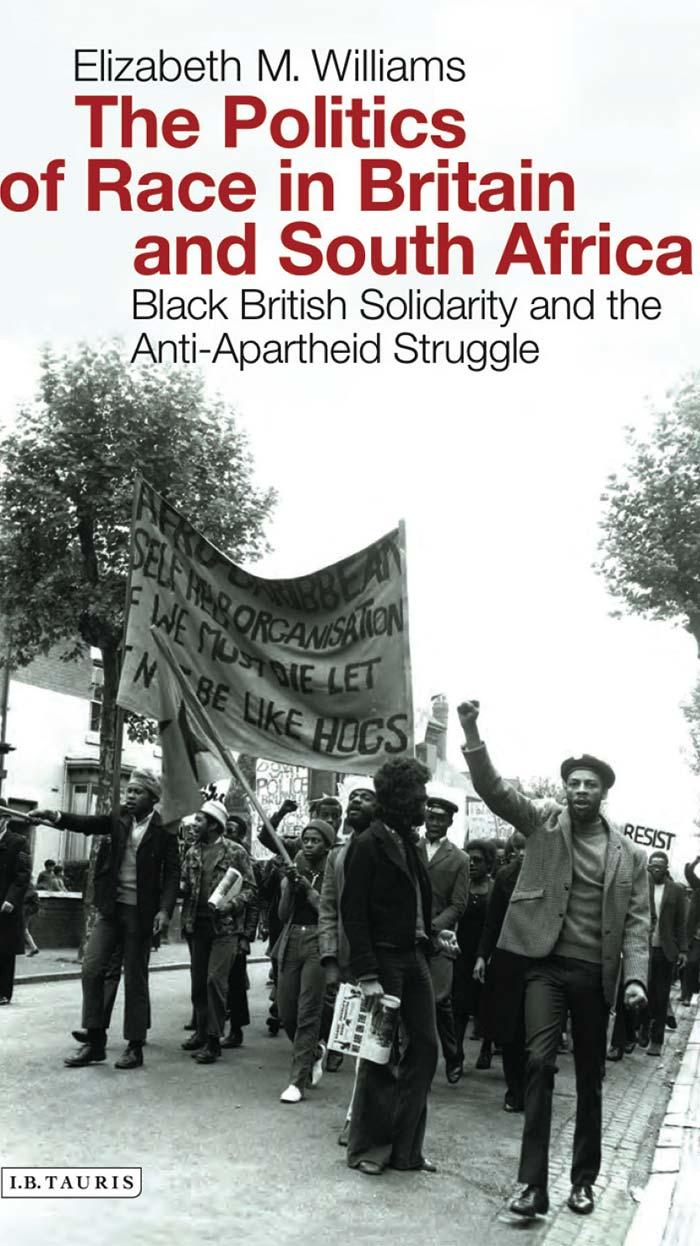New book explores “complicated dance with racial inequality” in UK and South Africa
Primary page content
A new book by Dr Elizabeth Williams, subject librarian in the Library at Goldsmiths, explores the often unremarked parallels between the black British and black South African experience of the 1960s-80s. Here Elizabeth introduces ‘The Politics of Race in Britain and South Africa’ and explains the “visceral connection" between Africans in South Africa and black communities in the UK.

Along with writing novels, he is also a performer and musician who has toured internationally and can be seen around London proselytizing at theatres and spoken word events or playing out with his band of ruffians ‘Rasp Thorne & the Briars’.
After years of study and research into the history of British domestic and international relations, my authorship of 'The Politics of Race in Britain and South Africa: Black British Solidarity and the Anti-apartheid Struggle' (IB Tauris, 2015) emanated from a desire to complicate and enrich the emerging history of anti-apartheid activity and the British Anti-Apartheid Movement (AAM) which seemed in danger of hagiographic characterisation.
All too often in the sweeping grand view of the big events of momentous societal change the voices and actions of the subaltern remain mute and invisible.
Perhaps unusually in the struggle for democratic liberation in South Africa, it was the unrelenting protesting voices and actions of the oppressed majority that ultimately led to the demise of Apartheid.
On a lesser scale, but no less seismic in terms of societal reconfiguration, the Britain of the 1970s and 1980s had to confront and negotiate its own complicated dance with race inequality. In response to urban revolts there emerged an institutional re-evaluation of settled communities of British Commonwealth citizens, who had shown hundred percent commitment to the British Empire during both World Wars, and a recognition of the unequal treatment of their British born children as they navigated the institutions of public life.
Some argued that when it came to matters of race, South Africa and Britain were dissimilar only by degrees. Ask any black British teenager of the 1960-1980s living in London, Manchester, Liverpool, Bristol about their lived experience and how they felt when they saw youths looking just like them being chased and beaten by the police thousands of miles away on the Southern tip of the African continent.
I became fascinated by the late twentieth century parallels which often remained unremarked upon in the analyses of race in South Africa and Britain.
Anecdotally most black people and Asians in Britain felt a visceral connection to the struggles of the African majority in South Africa. My book demonstrates this; the historical continuity of support and affinity that members of the African diaspora felt for the liberation struggle and why the relationship with the standard bearer of anti-apartheid activity in Britain embodied by the Anti-Apartheid Movement was a complicated one.
From interviews conducted by the author, we also hear the illuminating arguments of the voices of British government ministers and black and white activists for the first time. This book draws into one space the narratives of uneasy allies seeking the end of Apartheid with often different visions of how to get there and what the end game should herald.
Dr Elizabeth Williams will be speaking at the Professor Stuart Hall Building on Friday 30 October (6-8pm), joined by Professor Jane Powell, Dr Hilary Sapire, Caroline Lloyd (Assoc-Director of Library & Research Services), Professor Joan Anim-Addo, Professor Heidi Mirza and Professor David Killingray. There will be a special performance by Catford South African Choir. All are welcome.